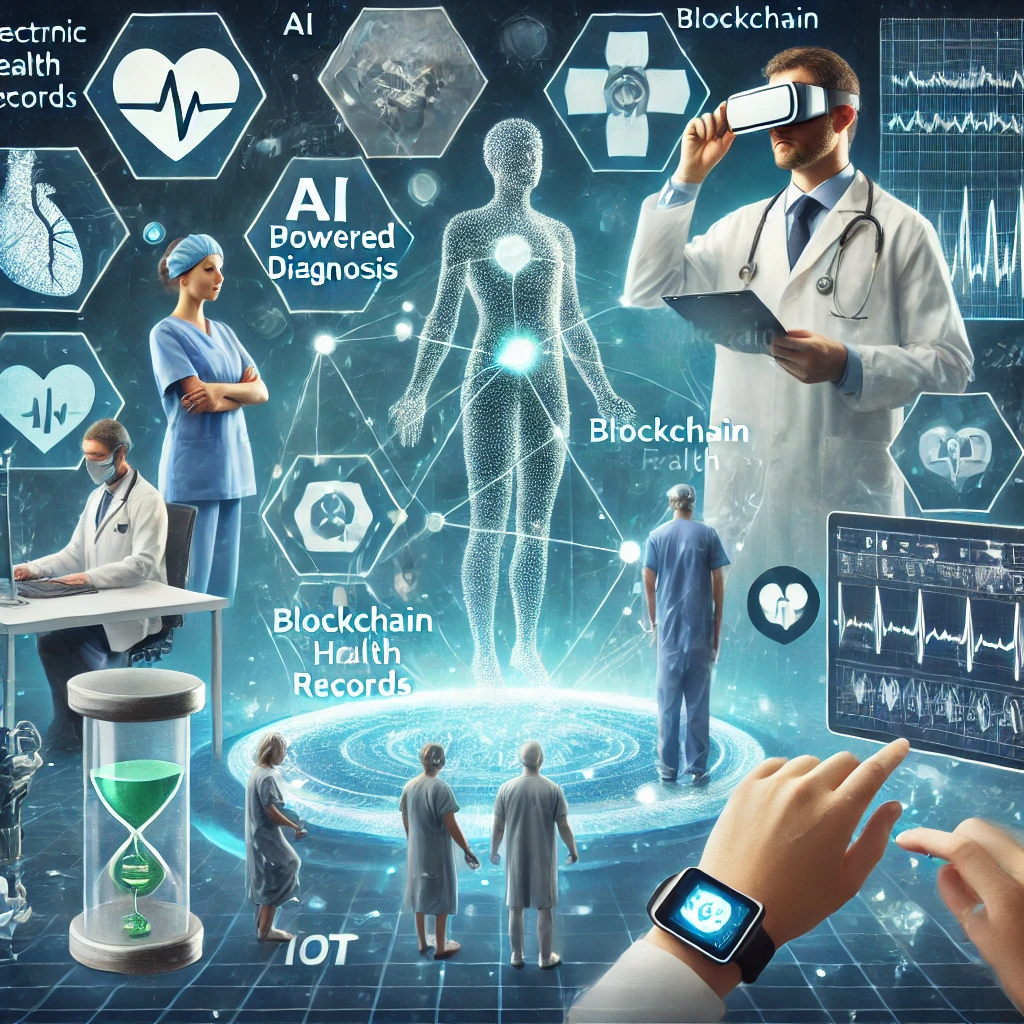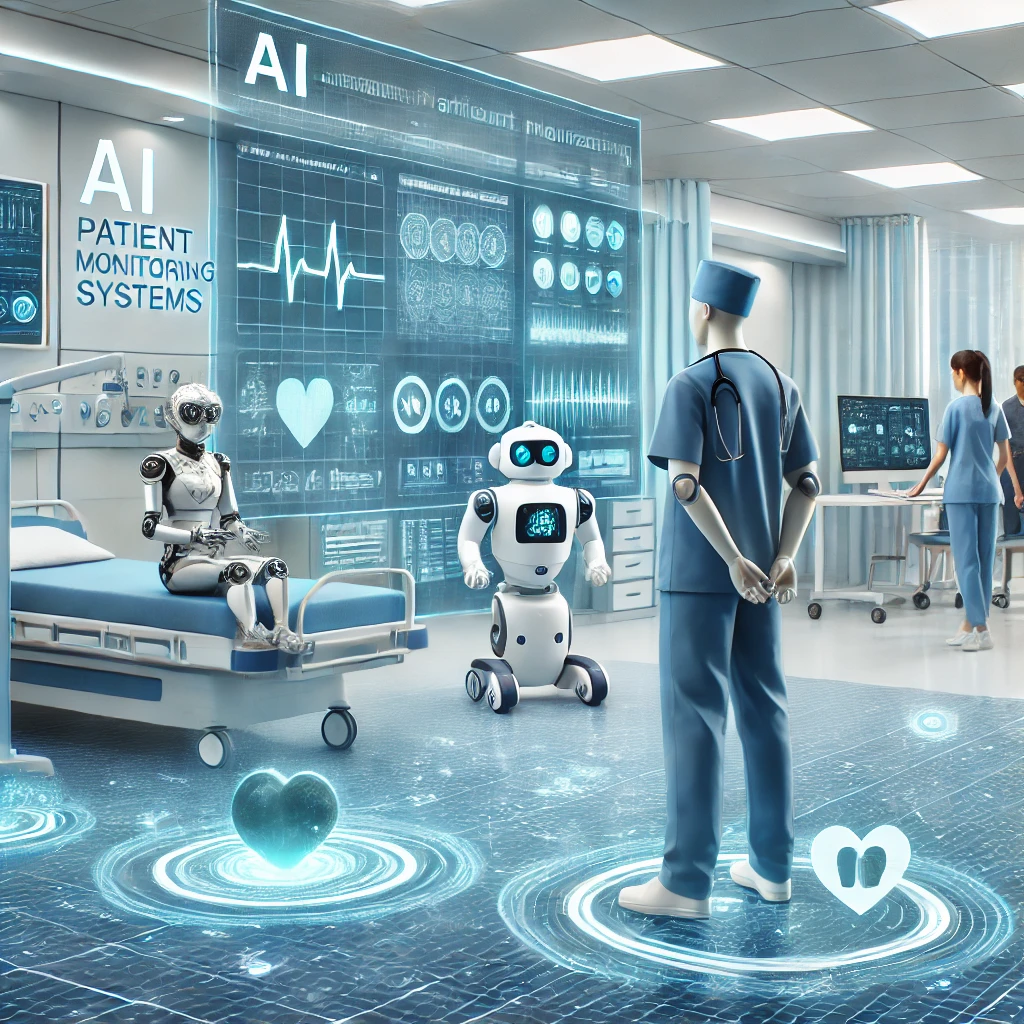Introduction
Healthcare Solutions has witnessed a transformative shift in recent years, driven by rapid technological advancements. From telemedicine to artificial intelligence (AI), cutting-edge solutions are reshaping patient care, hospital management, and medical research. This article explores the role of technology in healthcare, focusing on key innovations, their benefits, and the challenges faced in implementation.

The Evolution of Healthcare Technology
Healthcare technology has evolved from basic medical devices to complex AI-driven solutions that enhance diagnosis, treatment, and patient care. Initially, healthcare relied on manual record-keeping and paper-based patient files. However, the introduction of electronic health records (EHRs) revolutionized data management, improving efficiency and accessibility.
The integration of digital tools like cloud computing, big data analytics, and blockchain technology has further streamlined operations, ensuring secure and efficient healthcare delivery. These innovations have improved patient outcomes, reduced human errors, and enhanced communication between healthcare professionals.
Key Innovations in Healthcare Technology
1. Telemedicine and Remote Patient Monitoring
Telemedicine has emerged as a game-changer, especially in the wake of the COVID-19 pandemic. It allows healthcare providers to diagnose and treat patients remotely, reducing the burden on hospitals and clinics. Telemedicine platforms use video calls, mobile apps, and wearable devices to monitor patients, ensuring timely medical intervention.
Remote patient monitoring (RPM) is another significant innovation, enabling continuous tracking of vital signs such as blood pressure, glucose levels, and heart rate. These solutions enhance chronic disease management, reduce hospital readmissions, and empower patients to take charge of their health.
2. Artificial Intelligence and Machine Learning
AI and machine learning are revolutionizing healthcare by improving diagnostics, automating administrative tasks, and enhancing patient care. AI-powered algorithms can analyze medical images, detect anomalies, and predict disease progression with remarkable accuracy.
For example, AI-driven radiology tools can identify tumors and fractures more effectively than traditional methods. Additionally, chatbots and virtual assistants help patients schedule appointments, access medical information, and receive mental health support, reducing the workload on healthcare staff.
3. Electronic Health Records (EHRs) and Blockchain
EHRs have replaced traditional paper records, enabling seamless data sharing among healthcare providers. They enhance coordination, reduce duplication of tests, and improve treatment accuracy.
Blockchain technology further strengthens EHR security by ensuring data integrity and preventing unauthorized access. Decentralized ledgers store patient records securely, allowing only authorized personnel to access sensitive information. This technology enhances trust, transparency, and compliance with healthcare regulations.
4. Internet of Medical Things (IoMT)
IoMT refers to connected medical devices that collect and transmit patient data in real-time. Smart devices like insulin pumps, pacemakers, and smart inhalers improve disease management and patient monitoring.
These connected devices enable healthcare providers to make data-driven decisions, ensuring timely interventions and personalized treatment plans. IoMT reduces hospital visits, improves patient engagement, and enhances the overall quality of care.
5. Robotics and Automation
Robotics is transforming surgeries, rehabilitation, and elderly care. Surgical robots, like the Da Vinci system, assist surgeons in performing minimally invasive procedures with high precision. These robotic-assisted surgeries reduce recovery time, minimize scarring, and lower the risk of complications.
Automation is also streamlining administrative tasks such as medical billing, patient registration, and inventory management. AI-driven automation reduces errors, enhances efficiency, and allows healthcare professionals to focus more on patient care.
6. 3D Printing in Healthcare
3D printing has revolutionized prosthetics, organ transplantation, and surgical planning. Customized prosthetic limbs, dental implants, and orthopedic implants enhance patient comfort and functionality.
Bioprinting, an advanced form of 3D printing, enables the creation of tissue and organ structures. Researchers are exploring ways to print functional human organs, which could potentially address organ donation shortages in the future.
7. Genomics and Personalized Medicine
Advancements in genomics have paved the way for personalized medicine, where treatments are tailored to an individual’s genetic makeup. Genetic testing helps identify disease risks, predict treatment responses, and develop targeted therapies.
For example, cancer treatment is increasingly shifting towards personalized approaches, where specific genetic mutations determine the most effective therapy. This innovation enhances treatment outcomes and minimizes adverse effects.

Benefits of Healthcare Technology
The integration of technology in healthcare offers numerous advantages, including:
- Improved Patient Outcomes: Early diagnosis, precise treatments, and continuous monitoring enhance patient health and recovery rates.
- Cost Reduction: Automation, telemedicine, and AI-driven solutions reduce operational costs and prevent unnecessary hospitalizations.
- Enhanced Accessibility: Telemedicine and mobile health applications make healthcare services accessible to remote and underserved populations.
- Efficiency and Accuracy: AI-powered tools and robotics improve diagnostic accuracy and surgical precision.
- Data Security: Blockchain and cloud-based solutions ensure the safe storage and sharing of patient information.
Challenges in Implementing Healthcare Technology
Despite the remarkable benefits, adopting healthcare technology comes with challenges, including:
- High Implementation Costs: Advanced medical technologies require substantial investment in infrastructure, training, and maintenance.
- Data Privacy Concerns: Cybersecurity threats and data breaches pose significant risks to patient confidentiality.
- Regulatory Compliance: Healthcare organizations must adhere to stringent regulations, such as HIPAA and GDPR, to ensure patient data protection.
- Resistance to Change: Some healthcare professionals and patients may be hesitant to adopt new technologies due to unfamiliarity or skepticism.
- Interoperability Issues: Integrating different healthcare systems and ensuring seamless data exchange remains a challenge.
The Future of Healthcare Technology
The future of healthcare technology is promising, with continuous innovations aimed at improving patient care and streamlining medical processes. Emerging trends include:
- AI-Powered Drug Discovery: AI-driven research accelerates the development of new drugs and treatment methods.
- Augmented Reality (AR) and Virtual Reality (VR): These technologies enhance medical training, surgical planning, and patient rehabilitation.
- Wearable Health Tech: Smartwatches, fitness trackers, and biosensors will continue to play a crucial role in preventive healthcare.
- Nanotechnology: Nanomedicine has the potential to deliver targeted drug therapies and revolutionize disease treatment.
Conclusion
Technology is reshaping the healthcare landscape, making medical services more efficient, accessible, and patient-centric. From AI-driven diagnostics to telemedicine and genomics, these innovations are transforming the way healthcare is delivered.
However, addressing challenges such as cost, privacy, and interoperability is crucial for maximizing the potential of healthcare technology. As research and development continue, the future holds immense possibilities for improving global healthcare standards and enhancing the quality of life for millions worldwide.
Investing in cutting-edge healthcare solutions will not only benefit patients but also empower healthcare professionals to deliver better, faster, and more accurate medical care. The journey towards a technology-driven healthcare ecosystem is well underway, promising a healthier and more connected world.


